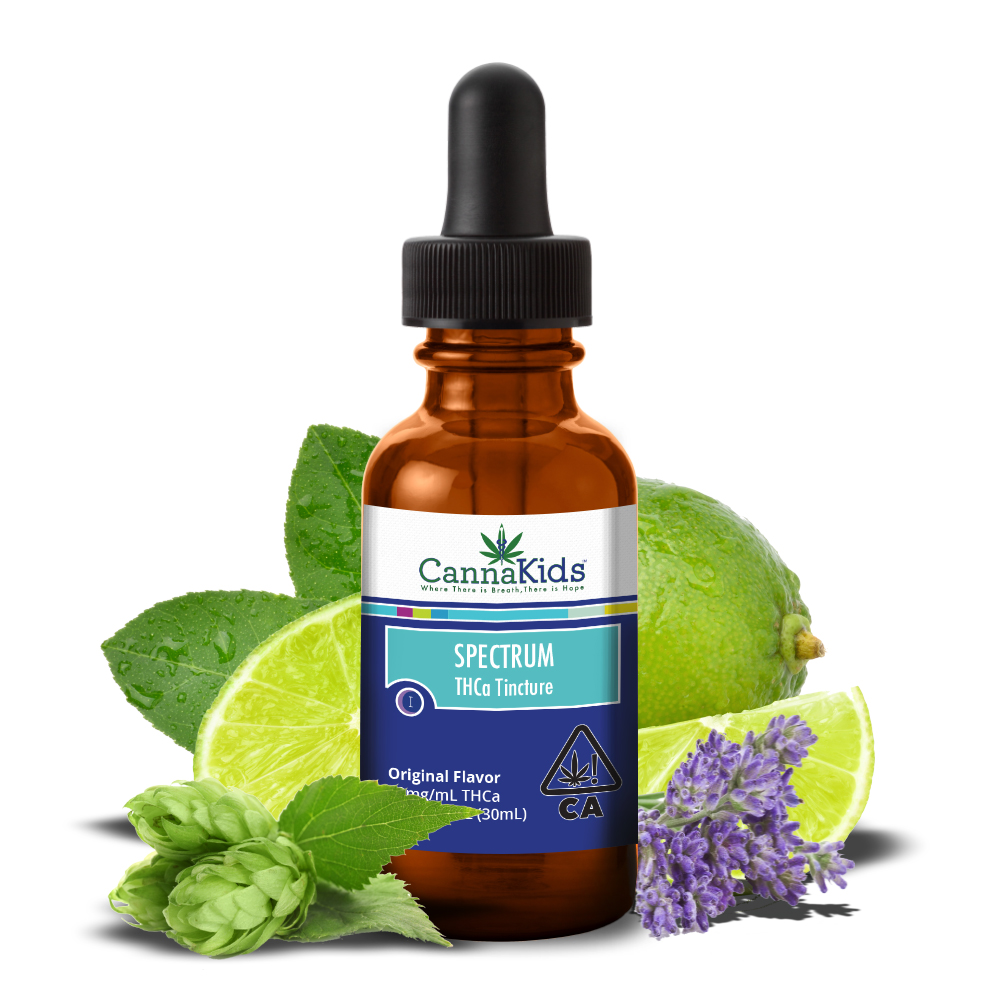
Offering her infant marijuana might have been the last thing Tracy Ryan expected to do, but after her 8-month-old daughter, Sophie, was diagnosed with a brain tumor in 2013, everything changed. After much research, Ryan and her husband decided to put Sophie on a high concentration of CBD and THC oil alongside her ongoing chemotherapy treatments.
“We really started to see there was some real benefit to this plan when it came to how it was helping our daughter,” says Ryan. She says Sophie’s tumor began to shrink at rates that her doctors couldn’t explain. Ryan was convinced it was the cannabis that was producing this seemingly miraculous result. By 2015, she began downsizing the media and graphics agency she and her husband were running and turned her focus to CannaKids, a company that sells medical cannabis products to patients of all ages.
Selling parents on the idea of medical cannabis for their children might not come easily given the small amount of available research around it. Marijuana is still classified as a Schedule I drug, meaning the federal government considers it one with a high potential for abuse and containing no medical value. This classification makes it difficult for doctors to get approved to study the benefits of THC.
“If I want to do a study on how THC may harm people, I’m allowed to do that. If I want to do a study on how THC may help people, I might get approved, but it would likely take three to five years,” says Bonni Goldstein, MD, a pediatrician and medical director of Canna-Centers Wellness & Education in L.A. “The good news is that more doctors are showing interest. I was a participant in a full-day education for physicians at a conference a couple of weeks ago. There were a lot of doctors in the audience that wanted the information.”
Goldstein says that, while medical cannabis doesn’t work for everyone, she has seen it yield incredible benefits for many of her young patients, including reduction in number of seizures and benefits for children on the autism spectrum. “We see children who were not speaking, start speaking, and children who didn’t even make eye contact, make eye contact,” she says.
A recent study at Stanford University found that children with autism spectrum disorder have lower levels of anandamide, a chemical produced in the brain to send messages between nerve cells. “This anandamide deficiency may be root cause or contributing to the symptoms of autism, and by replacing anandamide with cannabis compounds, balanced messages are restored in the brain.” says Goldstein, who was not a participant in the study and is not affiliated with CannaKids.
Ryan has also witnessed improvements among CannaKids clients with autism. “We don’t have any parents in the office that have children that have autism, but it’s just been one of those conditions that have seen the most benefit and it has created this incredible passion for me and my team,” she says.

One CannaKids customer described changes she witnessed in her daughter: “The first day I gave it to her, she sat down in the car and didn’t take her seat belt off like she usually does. She was looking outside the window and actually said, ‘Mom, I cannot believe how many 7-Elevens I’m seeing.’ My husband and I were amazed because, you know, she was actually having a conversation with us. At school, she started doing her work, started paying attention and participating. We received a letter saying she was being awarded ‘Most Improved’ in her class. The teachers were noticing the changes, too.”
CannaKids offers cannabis oils with varying levels of THC and CBD. Parents interested in learning more can schedule a free 15-minute call with a CannaKids coordinator, followed by a consultation with a doctor or nurse from the CannaKids recommended list. “We don’t take people’s lives into our hands,” says Ryan. “We work with people who understand both Western medicine and cannabinoid medicine.”


































